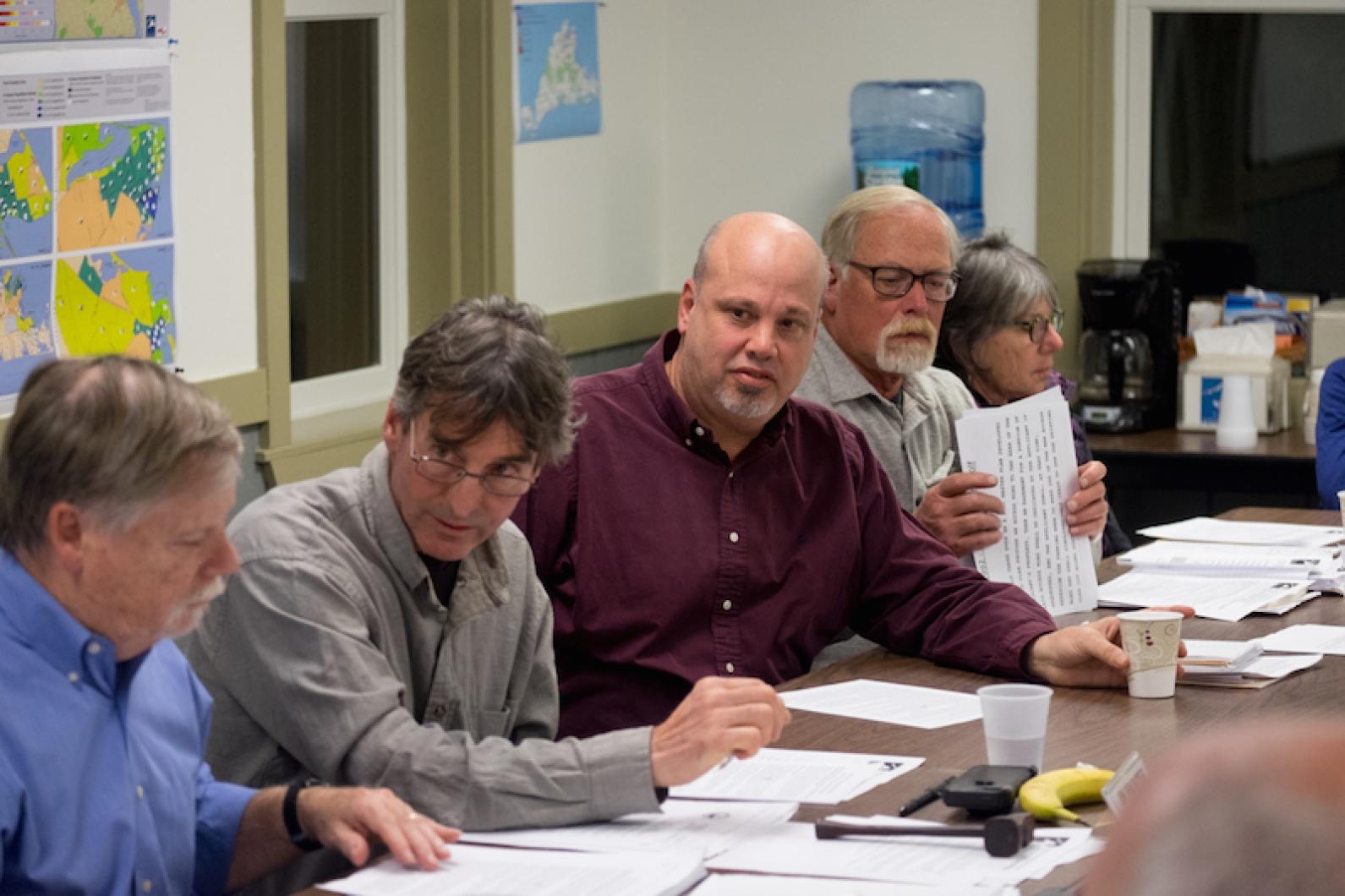Following a long and sometimes turbulent public review this year, the Martha’s Vineyard Commission voted Thursday night to deny the Oak Bluffs water district’s plan to build a solar array near the Manuel F. Correllus State Forest.
“It is a very, very small benefit for a lot of detriment,” commissioner Fred Hancock said of the plan by the water district to clear 10 acres of land bordering the state forest to make way for the large solar array. “And I don’t think the Martha’s Vineyard Commission wants to be in a position of saying that cutting down forests to put up solar arrays is a good thing.”
“This is one that I just don’t think makes the grade,” commissioner Doug Sederholm said.
The vote was 11-2 to not approve the plan.
The town water district, which owns the land, had billed the project as an opportunity to both reduce its carbon footprint and use expected energy savings over the next 20 years to improve infrastructure.
The commission reviewed the project as a development of regional impact (DRI). Four public hearings were held between February and October. Commissioners grappled with issues related to the sole-source aquifer below the site, and the value of ancient woodlands compared to renewable energy. In public testimony, ecologists from on and off the Island opposed the project, calling it well-intentioned but poorly sited. Among other things, they pointed out that the soils in the forest have remained undisturbed for thousands of years and that removing the vegetation would cause habitat fragmentation and open the door to invasive species.
A consultant hired by the developers had countered that the project would have no significant effect on the soil and that the forest could regrow in 60 to 70 years.
On Thursday night commissioner Linda Sibley drew her own conclusions from the testimony. “The roots systems — and every flora and fauna that live there too — are what make this unique,” she said during deliberations.
“People who have been paid by the applicant, to me never have the same level of credibility as outside experts who have no axe to grind, no money to make.” she added. “I put more weight on what they say.”
Commissioners had earlier sought to clarify the partnership between the water district, developer BlueWave Capital and project owner SunEdison. The district would have received only about a quarter of the energy produced, raising questions about how much SunEdison would expect to profit, and about the terms of a proposed tax agreement with the town. Both questions remained unanswered.
In weighing the pros and cons of the project, commissioners agreed it would be a detriment to groundwater, open space and habitat, along with the character and identity of the property. They agreed the cost savings to the district and its ratepayers would provide a benefit to the community.
Commissioner Ernie Thomas emphasized the role of solar power in offsetting other energy sources in the region, which include coal and nuclear power.
“Maybe in 20 years the forest will be dead anyway from the acid rain or the nuclear fallout,” he said, arguing that to sacrifice the proposed land “might be a reasonable exchange.”
But Mr. Sederholm disagreed.
“We’re not going to be able to replace the forest,” he said, noting that a solar array could still go somewhere else in town. “This is a good idea, but it’s not worth sacrificing six acres of our forest . . . I applaud the district, but I think it’s really the wrong place.”
The project would have marked a first for the town of Oak Bluffs, which has yet to follow the lead of all other Island towns in developing a municipal solar array. Town officials have been considering alternate sites, including near the Oak Bluffs transfer station on Pennsylvania avenue.
The roll call vote was as follows: Voting to deny the project were John Breckenridge, Christina Brown, Robert Doyle, Josh Goldstein, Fred Hancock, James Joyce, Joan Malkin, Kathy Newman, Doug Sederholm, Linda Sibley, and Jim Vercruysse. Clarence A (Trip) Barnes 3rd and Ernie Thomas dissented.
The vote followed the lead of the commission’s land use planning subcommittee, which voted Monday not to recommend approval of the project.




Comments (9)
Comments
Comment policy »